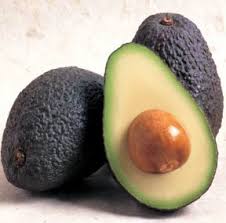
Fairly frequently articles come up outlining how important it is to buy certain foods organic while other foods are less dangerous in their "traditional" form. Find a list you trust, memorize a few key foods that you often buy, and get shopping!
Here's the information from one such article:
Should Buy Organic
-Milk
-Meats
FRUITS:
-Peaches
-Apples
-Nectarines
-Strawberries
-Cherries
-Grapes
-Pears
-Raspberries
-Plums
-Oranges
-Tangerine
-Cantaloupe
-Lemon
-Honeydew
-Grapefruit
-Watermelon
-Blueberries
VEGETABLES:
-Sweet Bell Peppers
-Celery
-Lettuce
-Spinach
-Potatoes
-Carrots
-Green Beans
-Hot Peppers
-Cucumbers
-Cauliflower
-Mushrooms
-Winter Squash
-Tomatoes
-Sweet Potatoes
Don't Have to Buy Organic
-Avocado
-Banana
-Pineapple
-Kiwi
-Mango
-Papaya
-Asparagus
-Broccoli
-Cabbage
-Onions
Image from http://tbn2.google.com/images?q=tbn:RIA2pRwDp4HIpM:http://whatscookingamerica.net/Fruit/AvocadoPhoto.jpg




5 comments:
The bigger, and more confusing, question to me, is Organic or Local?
Do you buy local if it's not organic or do you buy organic even though it was grown 1000 miles away?
Jess,
That is such a hard question, isn't it? Making the choice between organic and local depends on so many variables.
What type of local is it? Small farms using mostly organic methods but don't have their food USDA Organic certified yet? Or big factory farms that happen to be close by?
What type of food is it? Is it one that retains a whole lot of pesticides? Is it even possible to get it locally (apples don't grow in FL, for example, etc.)?
Personally, I choose organic over local (when lucky enough to have such a choice). Carbon footprints are vitally important to consider, of course. But the health risks of eating non-organic foods tips the balance of the scales for me.
Plus, patronizing organic growers helps the environment on a bigger (though slower) scale. As the say, we must demand the supply of organic foods but also supply the demand for them. That's a concept I'm really committed to.
What criteria do you consider?
Well, my grocery store doesn't offer much of either local or organic produce. There's a farmer's market I go to if I get off work before it closes, but I really don't pay that much attention to whether it's organic or not. I am more prone to buy locally grown food, not just because of a smaller carbon footprint but because I think it's important to help the local economy.
You posted something about BPA in metal food cans, right? You probably won't want to read this, either: http://www.jsonline.com/watchdog/watchdogreports/34532034.html
If you choose to buy local, it pays to know as much as you can about the farm/farmer.
Many smaller farms have less of a need for pesticides or herbicides because they are polyculture farms (the farmer grows more than one crop). When one plant is grown in large quantities, it is more susceptible to pest infestation or damage from competing "weeds". Small farms with a variety of plants by nature need less pest & weed control than large, single-plant farms.
If you shop at the local farmer's market, don't be afraid to ask people about their growing methods. Many small farmers use organic growing practices to some degree or another, but have not gone through the USDA process (which, from what I've heard, is fairly cumbersome and expensive).
I personally would choose local produce over organic produce. I share Hannah's concerns over health risks, but I feel that it is important for us to become more aware of where our food comes from and how it is raised. It is easier to do that when you buy local. Many small-scale farmers welcome visits from their customers.
If people support local farmers and request organic products on a regular basis, we will begin to re-establish a local farming network. I appreciate the value of organic products. However, I feel that the deindustrialization of our food sources will be more sustainable in the long run and will help foster jobs and community development. When the growth and production of food is an integrated part of the community, I think both the producers and the consumers feel more of a sense of responsibility and the network becomes more transparent. This also sets the foundation for a generally higher quality of product in both flavor and nutrition.
To me, buying organic is more of a health choice. Buying local is a health, lifestyle, and community choice.
I also highly recommend the book The Omnivore’s Dilemma by Michael Pollan. It is a very through description of the different food systems available in the United States.
(Ok, I'll shut up now. In case you couldn't tell, I think food is a big deal.)
Wouldn't it be great if we actually HAD the choice between local and organic? I do have hope though that in the not-so-distant future we will, indeed, have the privilege of making such choices.
Jess: Thank you for your link about BPA. Look for another post on BPA coming up soon. :)
Amy: So glad you found my blog! Can't wait to read the Omnivore's Dilemma. Excellent analysis of local vs. organic.
Post a Comment